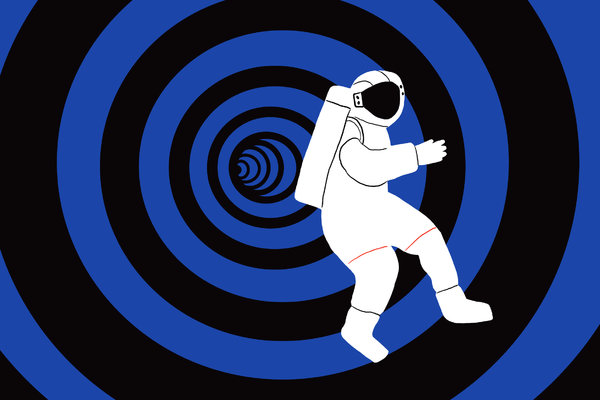Only a fool would try to place limits on the reach of science, which fumbles upward by trial and doubt.
To be clear, I’m all in favor of reaching for whichever stars — so to speak — might be calling to you. But at the risk of sounding incurious or unscientific, there are some questions that I’m not sure I want answered.
It’s not that I don’t want them solved. No, I worry that I might be disappointed by the Big Reveal, in the way old horror movies were scarier when you never saw the monster.
Jim Peebles, the famed cosmologist at Princeton University, once told me that if someone offered him a tablet of stone that held all the answers to the mysteries of the universe — how old it is, where it’s going — he would throw it away.
The fun, he said, is in the attempt to find out. So here are some stone tablets that I would throw away.
[Like the Science Times page on Facebook. | Sign up for the Science Times newsletter.]
I don’t really want to know what’s in a black hole: The end of time? Another universe? All your bad dreams? My lost socks? I’d hate for any of those intriguing possibilities to be eliminated.
Nor do I want to know what evolution has in store for us. If I knew how it was expected to go, and I tried to intervene, I probably would screw it up. I’m not as smart or as innovative as nature, randomly shuffling the genetic deck.
The fate of the universe? I feel the same way about it as I feel about the future of the stock market: Entrusted with too much knowledge, I will make grave errors.
Oh, and I certainly don’t trust science to tell me what to eat. I’ve already made peace with my dietary vices. I wouldn’t want, or trust, some expert to ruin the terms of the ongoing and relatively successful deal I’ve made with my body.
I will persist in believing chocolate and wine are healthy indulgences. I don’t need to know how many calories are in a Frappuccino, nor what’s in my burger, which was once one of the true pleasures of life.
I don’t want to know what my cat is thinking before he pounces on my foot while I’m trying to do tai chi. Or if a fish feels pain.
And I hope we don’t discover time travel. The temptation to go back and try to fix things would be overwhelming. Any science fiction fan knows how this will go: One misstep, and we wind up in a Nazi dictatorship or worse, our lives turned into endless episodes of “Doctor Who.”
So no to that.

11 Things We’d Really Like to Know
And a few we’d rather not discuss
I also don’t want to know what the genes for intelligence are. Hopefully there are a lot of them, and we won’t know how they work.
I used to think I was pretty smart, until I got to M.I.T. as a student and realized I wasn’t even a contender for the smartest guy in the room.
So if outfits like 23andMe make it possible to determine my I.Q. with a spit test, well, I don’t want to know how I score. There are already too many experts slicing and dicing our expectations and ambitions for us.
I hope we never find out what happened to the Anasazi or the Mayans or Atlantis or any of the other lost civilizations, because wondering and watching our own backs keeps us on our feet. Any confidence that we know what to look out for will surely kill us.
And if we ever do stumble upon a message from some extraterrestrial civilization, I don’t want to know what it says. Knowing that the aliens exist and imagining what they were up to would be enough to keep us busy for centuries.
What if the note contained the secrets to world peace, string theory, thermonuclear power reactors, or turning our skin into photosynthetic energy factories? That would be cheating. If we’re not smart enough to figure out these things on our own, we don’t deserve to survive.
Besides, I fear that disagreements over how to interpret such a message could get as ugly as the religious wars we like to hope we’re moving beyond.
I don’t want to know how I will die. I have a suspicion about that, but I’d rather not know for sure.
Finally, although as a journalist I am usually a fan of stories of heroic scientific endeavor, I’m not sure I want to know how humans figured out that the best coffee comes from beans that have been digested by civets, catlike animals in Southeast Asia.
But I ordered some civet-poop coffee anyway. I’m willing to reckon with that unknown. I’ll let you know how it tastes.

